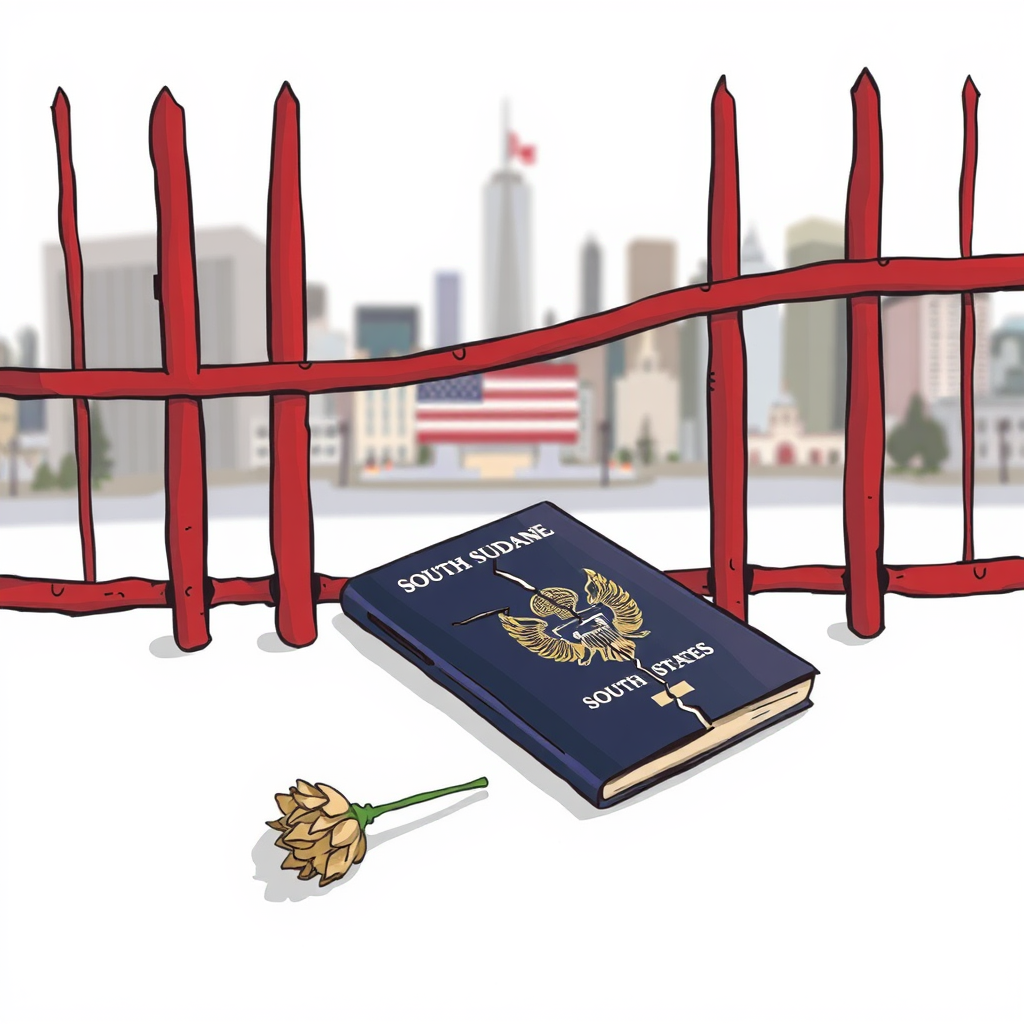US Revokes Visas for All South Sudanese

Washington is enacting a sweeping visa restriction targeting all South Sudanese passport holders, effectively halting both new arrivals and revoking existing visas, according to statements made by Secretary of State Marco Rubio on Saturday. The move stems from the U.S. government’s frustration with South Sudan’s alleged failure to facilitate the return of its citizens who have been ordered removed from the United States.
Rubio asserted that the State Department is taking action to prevent entry by all South Sudanese nationals, framing the decision as a necessary response to Juba’s lack of cooperation. This marks the first instance under the recently re-established Trump administration of a blanket visa restriction applied to an entire nationality.
The administration accuses the transitional government in South Sudan of exploiting U.S. immigration policies, insisting that all countries bear the responsibility of accepting their citizens when repatriation is requested. Rubio indicated a willingness to revisit the policy should South Sudan demonstrate full cooperation.
This decision arrives amidst ongoing instability in the world’s newest nation, South Sudan, which continues to grapple with political tensions and the lingering threat of renewed civil war – a conflict that claimed an estimated 400,000 lives between 2013 and 2018.
Previously, South Sudanese nationals in the U.S. benefited from Temporary Protected Status (TPS), granted by the Biden administration, which is set to expire in May 2025. TPS shields individuals from deportation due to conditions like war or natural disasters. Approximately 133 South Sudanese were actively under TPS as of September 2023, with another 140 eligible to apply.
However, the Trump administration has been actively reversing TPS designations, most recently revoking protections for over 600,000 Venezuelans. That decision is currently stalled pending a legal challenge questioning the administration’s rationale. As of March 2024, roughly 1.2 million people in the U.S. were eligible for or receiving TPS, with Venezuelans comprising the largest group.
The visa restriction on South Sudan also coincides with a surge in the number of African migrants attempting to enter the U.S. through its southern border, seeking an alternative to the dangerous routes to Europe.
This policy shift appears to prioritize immigration enforcement over humanitarian concerns, potentially punishing all South Sudanese citizens for the actions of their government. While holding nations accountable for accepting deported citizens is a valid principle, a blanket visa restriction risks exacerbating the already dire situation in South Sudan, hindering legitimate travel for students, medical patients, and those seeking refuge from the ongoing instability. It remains to be seen whether this aggressive approach will effectively compel Juba to cooperate or simply further destabilize a fragile nation.